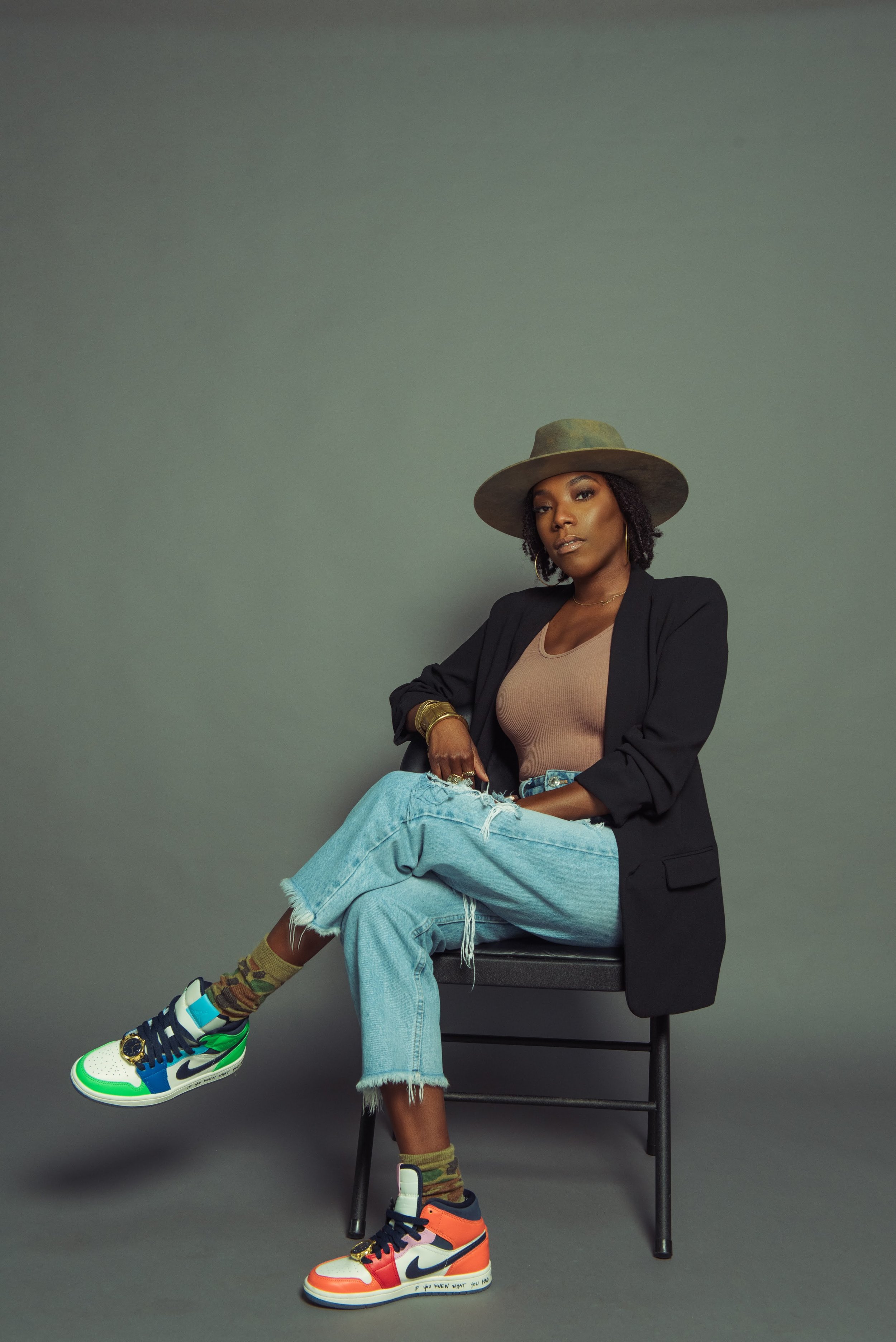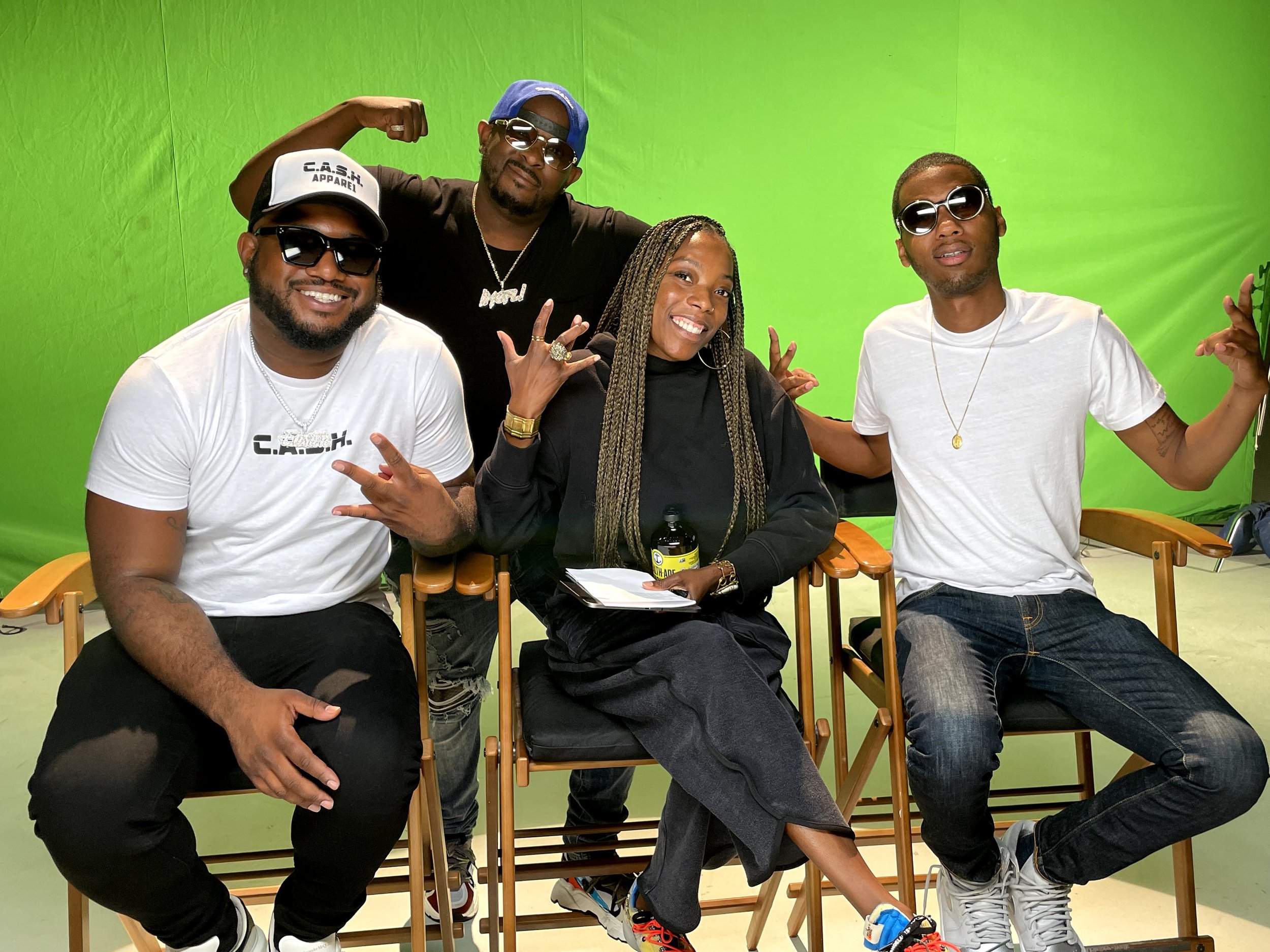by Jessica Wilkins
Millennial Black girls from Atlanta are special. We came up during the analog version of “the A,” AKA “Old Atlanta,” where Blackness was always our default. Our teachers, doctors, lawyers, business owners, and neighbors all looked like us, so we were afforded a unique confidence in our identities. Once a place that offered small-town southern charm, rich in local Black culture, history, and community, Atlanta has now become a hub for creative industries, particularly music. Prior to the digital age, Atlanta had its own musical identity–from the bass music of So So Def, Kilo Ali, and Raheem the Dream which were synonymous with the Freaknik era, to Baby D and Oomp Camp Records ushering in the crunk era. And when Outkast’s André 3000 proclaimed “The South got something to say” at the 1995 Source Awards, everyone listened. Through the advent of the Internet, small pockets of Atlanta music were opened to the world. Music Marketing Professional Kirsten Daniel embodies the spirit of “Old Atlanta'' while contemporaneously navigating an ever-changing digital-based industry.
Being born and raised on the West Side of Atlanta with an enduring passion for the arts, Kirsten Daniel landed her first role in the industry as an intern at Grand Hustle Records in 2008. Since then, she’s managed a Grammy-nominated producer, had her company ATEAELLE named one of Forbes’s Black Businesses to Watch, and has built a 14-year career bridging the gap between artists and their audiences while serving the Atlanta community.
Jessica Wilkins: Did you always know you wanted to work in music? How did you arrive here professionally?
Kirsten Daniel: The only college I had seen was on A Different World so I was a little untraditional in the sense that everybody was talking about college and I was like ‘I’m just going to go work because college? Why? What am I going to do there?’ And when I was being forced to go by my godmother, I knew I was not a math and science girl…So Mass Communications resonated the most with me. I stumbled upon music after I tried radio, and I tried studying television and film, and none of those resonated. I got out of college and had an internship and I was like “This is it!” I knew immediately.
JW: How has being an Atlanta native impacted your career?
KD: If you play some bass music right now, I’m going to think about the 90s, being in the yard, playing hand games with my friends, making up dances. Every era of music has a soundtrack for me, so I was in full alignment when I [got in the music industry] because Atlanta music was so prominent in my life...Music was what I modeled my life behind, what I resonated most with, and what I connected most to from the harmony, the melody, and the lyrics, to commemorating different events with a sound.
JW: Do you feel fully seen as a professional?
KD: I’m really fortunate to have some solid male OGs, or mentors, or leaders in that space. For instance, Jason Geter is someone I’m very close to. And I feel very seen, heard, and understood by him. So even if there’s something I feel uncomfortable with, a stance or a perspective that I have, I respect that he always values my input. It has been tough because we see oftentimes a lot of men in this space are not as smart or efficient, but they can transcend certain levels just by being a man. That used to be very tough for me to navigate, but now that I’m an entrepreneur I move to the beat of my own drum and work with projects I feel most connected to, and it’s a lot easier for me to say “This is not in alignment, yes I want to work with this person, no I don’t want to work with this person” because I’ve had so much experience. One thing I’ve never had a problem with is setting boundaries.
JW: Was there a moment that taught you to have stronger boundaries, or was that something that happened organically over time?
KD: I’ve always been kind of self-aware. I trust that thing inside of me that says, ‘This doesn’t feel right. I’m compromising too much of myself and I’m not getting that in return.’ I’ve always been quick to see that. Anyone, man, woman, or child will tell you that the entertainment industry is a very unforgiving place. It’s a place that’s very selfish. You give so much of yourself, especially when you work with artists, and very seldom do you receive that energy back. So when I get to the point where I feel like I don’t feel appreciated or respected, it’s not an issue for me to say “Hey, this relationship no longer serves me.”
A gallery of projects Daniel has worked on in a management or in a marketing capacity.
JW: We’ve witnessed so many advances in technology and their impact on the industry, how has your role as a marketer had to evolve with those changes?
KD: When I started, there were departments that were called ‘New Media’ and it was the format where you go to run ads on different platforms and blogs back in the day like Concrete Loop or Bossip. Beyond that we were asking, “What are the in-stores? What is the promo tour? What platforms do you go to for interviews? What is the club run?” Everything was so much more irl when I started and now we’re in a predominantly digital space, I think it’s taken away some of the connection we feel with artists and with music. It’s affected the longevity of it. We’re so focused on consuming things so quickly that we’ve lost the allure of what value really is. I love messages like Tyler the Creator who said, “Work this record, this album for 12 months, for 24 months. Because if you put out something great, then you should stand behind it.” At a certain point, we’ve gotten more into quantity over quality and I think it’s hurt a lot of artists. I’m just more of an analog girl myself anyway, so for me to do a marketing plan, I’m always trying to figure out what we can do so the artists can get out and touch and see their fans…If there is no relevance to where your consumers are given the time and space we’re in right now, then it’s hard to build a connection beyond liking photos on Instagram and liking one dope song.
JW: What are your hopes for the future of Black women in music marketing?
KD: I hope we can start to appreciate the diversification of all different types of sounds, personalities, images, upbringings, backgrounds, sexual orientations, gender identities. I think we have to be a lot more inclusive about what it looks and feels like. If not, we’re going to have ten rap girls all doing the same thing from a different region or small city looking and sounding just the same. One thing about the music industry is that the people at the top are always trying to make the same thing a different way over and over again…I think it’s supporting what you like, being more diligent in finding and sourcing talent that resonates with you, and being more vocal about what you’re into. Sometimes you want to be put on. I find myself listening to the same artists over and over again. I would like for us to really support new artists with our voices, our dollars, and our social platforms.



